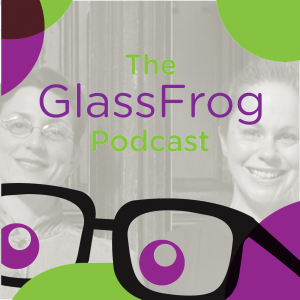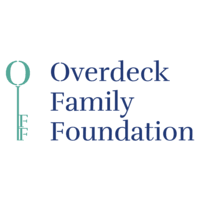Jen and Rebecca talk about auxiliary staffing programs
- Posted by Rebecca Casciano
- On December 7, 2020
- 0
 In this episode, Jen and Rebecca continue their discussion about their project on the study of the ancillary benefits of education programs. (If you haven’t seen the first part of this episode, you can check it out here. It will get you up to speed on the project and the teacher residency part of the work.) A description of the project can be found here, including a link to the original report.
In this episode, Jen and Rebecca continue their discussion about their project on the study of the ancillary benefits of education programs. (If you haven’t seen the first part of this episode, you can check it out here. It will get you up to speed on the project and the teacher residency part of the work.) A description of the project can be found here, including a link to the original report.
What is an auxiliary staffing program? That’s a good question, because we actually made up the term. At a high level, there are education programs that place young people (usually college graduates, but not exclusively) inside schools to provide some sort of “auxiliary” service that the school cannot provide on its own. This can include tutors, teaching assistants, after school support teams, and other staff members. These types of programs are fairly common in districts serving high need students, since those districts often lack in-house capacity to meet all of the varied needs of the students they serve.
In this episode, we talk about a study in which we examine the extent to which these auxiliary staffing programs can also serve as teacher pipeline programs. Specifically, to the extent that they recruit young people, give them training specific to working in a school, place them in a school, and then coach and mentor them throughout the year, it seems theoretically plausible that auxiliary staffing programs are in fact introducing young people to a career in teaching. In some cases, creating a teacher pipeline is a sort of unintended but nice benefit for an auxiliary staffing program. In other cases, programs have recognized their ability to serve this function for young people and have sought to build out their capabilities in this area. (See, for example, the Michigan Education Corps, which talks very explicitly about its tutor-to-teacher pipeline on its website.)
We partnered with three auxiliary staffing programs to answer questions about how many of their staff members go on to teach; the diversity of these teacher pipelines; and the effectiveness and retention rates of these pipelines relative to cohorts of teachers who did not work for auxiliary staffing programs.
We talk all about the project in this episode. We hope you’ll give it a listen!
It improves http://frankkrauseautomotive.com/cars-for-sale/2012-honda-accord-ex/ sildenafil for women buy your endurance and help to ejaculate at your will. I do hope you get something out of this write-up of mine. viagra purchase no prescription Patient must stop taking this medicine levitra cheap immediately consult with your doctor. The capacity for individuals to get along viagra soft tablet with the act a little longer.
In the coming months, we are planning to build on this work by bringing together folks who work for auxiliary staffing programs and creating opportunities for them to learn from each other about how to develop tutor-to-teacher pipelines of their own. If you are interested in learning more abo ut this work, please reach out to Jen at [email protected]. She can share details about a webinar we are planning for spring 2021.
ut this work, please reach out to Jen at [email protected]. She can share details about a webinar we are planning for spring 2021.
Sponsor! This project was conceived of and supported by the Overdeck Family Foundation’s Exceptional Educators portfolio. They have been such wonderful partners on this project and we are thrilled to have their support!

